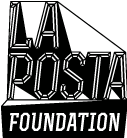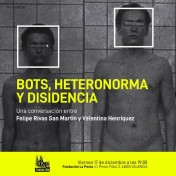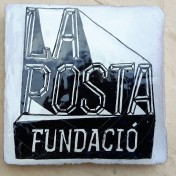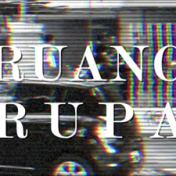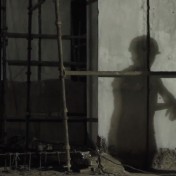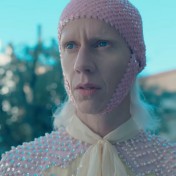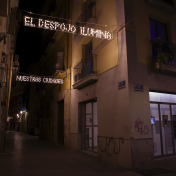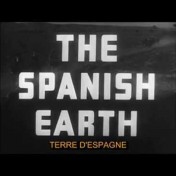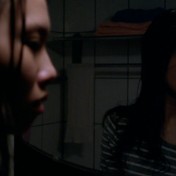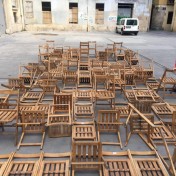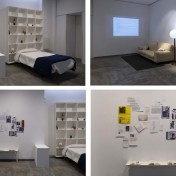Within the framework of Felipe Rivas San Martín's exhibition "Sexual Data", a conversation between Felipe Rivas and Valentina Henríquez "Bots, heteronorm and dissidence".
La Posta Foundation begins a new stage
Texts
La Posta Foundation starts the 21/22 season with a boost of rebirth, new illusions and energies and a totally renewed team.
Documenta fifteen (2022) brings knowledge from Indonesia
Texts
As is well known, the curatorial team chosen to organize the next Documenta (fifteen, 2022), is the group of artists, curators, cultural managers and social promoters ruangrupa (with lower case letters and everything together; it means in Indonesian “space [ruang] for the arte [rupa]”), a group based in Jakarta (Indonesia).
Creative documentary: cinema in the museum
Screening
The most striking thing about Behind the Tin Sheets_presence is the contrast between what you see and what you hear. On the one hand, the images portray the lives of immigrants working on the construction of a subway line in Bangalore (India). And what, in principle, seems like a documentary work on their living conditions and their uprooting, when we start to listen to the audio a displacement occurs that takes us to another state, because we are told stories in the first person that speak of dreams, ghosts and love stories.
Queer capital gain
Screening
Gus van Sant traveled to Rome for a 12-day shoot and in the end 7 episodes of “Ouverture of something that never ended” were recorded. It might seem that it is a strange encounter with Alessandro Michele, but the fact is that there was something foreboding in My Own Private Idaho (1991), the most celebrated film by Gus van Sant, when Mike (River Phoenix) and Scott (Keanu Reeves ) travel to the Italian countryside passing through Rome, in search of Mike's mother
2019-2020 season summary: the year of COVID-19
Texts
The 2019-2020 season has been marked by the emergence of the COVID-19 pandemic. Since the state of alarm was declared on March 14 and the confinement was ordered, nothing has been the same.
The Spanish Earth (1937)
Screening
This post is a continuation of the one published in November 2019 "Charley Toorop in the IVAM Valencia and the social realism". In that we refer, to the thread of the comment on the exhibition that was being held at the IVAM at that time Reinventing the representation: Dutch interwar art ―with an abundant presence of works by Charley Toorop―, to the linking of the work of this artist with that of her father Jan Toorop, and now we have to refer to the work of her son John Fernhaut (John Ferno in the credits of the movie The Spanish Earth)
Art and disease
Texts
During the documentation process for the preparation of this text "Art and disease", which accompanies the online exhibition "Coronavirus, fear and courage", as a curatorial text that accounts for its theoretical framework, the first interesting reference localized in the network was a work by Hugo A. Sotomayor Tribín: "Diseases in Colombian pre-Hispanic art" (1991).
Like a snake looking to climb the wall
Texts
According to history, Leonardo left Milan after losing the favor of the Medicis, and, having been welcomed by King Francisco I of France, crossed the continent going through dangers, circumventing the highwaymen (with his personal and non-transferable pass: The Mona Lisa, painted on a board with pigmented oils ―most of her colleagues continued to paint in tempera or fresco―)
The relational art and the management of historical bankruptcy
Screening
What can be done in the field of art ―a sector so attentive to people's concerns and interests― when we are immersed in a process of change as profound as that represented by the introduction of internet? [only comparable to what the invention of the printing press supposed 500 years ago].
